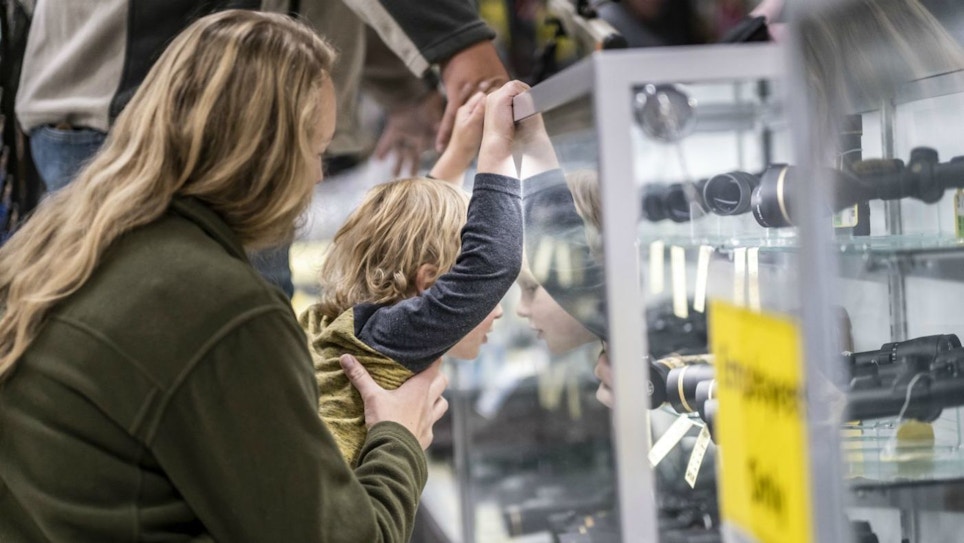In the backs of their minds, all small business owners are constantly thinking about liability — or should be. You never know when a gremlin is going to jump out from behind a wall, and BAM! A customer tries to remove merchandise from high up on a shelf and drops it on their own head, a vendor slips on a wet floor, an employee cuts themselves opening packaging, whatever, and before you know it, they’re talking lawyers and lawsuits.
Did you know that, according to the National Safety Council, in America a worker is injured on the job every seven seconds? The top three causes are overextension (lifting or lowering, repetitive motions), 33.54%; contacts with objects and equipment, 26%; and slips, trips and falls, 25.8%.
Taking it a step further, according to the National Retail Foundation, the most common reported customer injuries are, slips and falls from liquids in aisles; faulty staircases; broken or poorly maintained escalators and elevators; merchandise falling from shelves; insufficient lighting in parking lots; revolving door breakdowns; and cuts from showcases and jagged shelves.
Legally, when a retail store opens its storefront to the public, customers — legally referred to as invitees — are invited into the retail space by an implied invitation. Invitees can also include contractors, salespeople, repairmen, truckers delivering merchandise, wholesalers, and anyone else who has entered the storefront to conduct business. Premises liability law protects invitees by requiring property owners to exercise a reasonable duty of care to maintain a safe retail environment for all invitees.
In a premises liability case involving retail store negligence, the plaintiff must prove that the retail store had failed to exercise reasonable care. Reasonable care for a retail store means the store has done everything in its power to prevent foreseeable injury or harm. If a customer is harmed, it is often because of retail store negligence.
Usually, retail stores will have safety policies in place to prevent harm to the public. When the store does not follow or violates their own safety policies, that violation is the equivalent of being negligent. When a store is found negligent, they are liable for their customer’s damages.
What About COVID-19?
In today’s world, this premise of negligence has been stretched to include protections for both employees and customers from contracting COVID-19.
In late May, Jay Porter, with the law firm of Bradley, Arant, Boult & Cummings, LLP, spoke to the question of the “changing face of liability in the age of COVID-19” during the National Shooting Sports Foundation’s online seminar for members to talk about liability. During that seminar, Porter reinforced the belief of many that, even before any liability issues have been raised, corporate law firms have already begun assembling both potential offenses and defenses regarding COVID-19 claims against businesses.
He also stressed that retailers must understand and follow any and all government regulations, whether you agree with them or think they’re crazy. This includes, but is not limited to, social distancing, limiting the number of customers allowed inside the store at any one time, regular disinfecting of the workplace, having hand sanitizer available for customers and employees, and encouraging or requiring employees and customers to wear masks. Those who fail to follow accepted guidelines instantly become potential targets for a lawsuit.
In a May 1, 2020, article in The National Law Review titled “Best Practices for Limiting Liability When You Reopen,” it is recommended business follow all applicable guidelines from not just state and federal governments, but also OSHA, the CDC, and even the World Health Organization. In this regard it’s better to do too much than not enough. They also recommend implementing one-way aisles, reviewing shipping and receiving operations to make them as contact-free and safe as possible; closing breakrooms and other common areas; requiring PPE appropriate to the workplace; and offering more shifts with fewer workers or other staffing changes to limit interpersonal contact.
Of course, a customer or employee who claims they contracted COVID-19 from your shop has to prove that claim. Because the risk is high, as are the possible effects of contracting the virus, only by rigorously following all the required guidelines can you hope to protect yourself in the event someone sues you.
Lest you think someone suing you claiming they caught COVID-19 while doing business with you — or for tripping over their own feet walking into your store, or pulling a heavy box down on their head even though a sign next to it says “Do not touch merchandise on this shelf, ask for assistance first,” — would be impossible to prove, check out this linkand have your memory refreshed about past frivolous lawsuits. In some of those, plaintiffs were awarded huge cash sums, or at the very least the suit cost the defendants untold time and money in legal fees spent defending themselves despite their own obvious stupidity. The famous 1992 suit where Ohioan Stella Liebeck spilled hot McDonald’s coffee on herself, sued, and was awarded $160,000 in compensatory damages and $2.7 million in punitive damages, is just one such example.
There’s no doubt we live in a litigious society like none we’ve ever seen before. And that Proverbs 21:31 philosophy — do your best, prepare for the worst, trust God to bring victory — is one that all small business owners should take to heart. At the same time, we should heed the words of Benjamin Franklin, who, in his 1757 edition of Poor Richard’s Almanac, said, “God helps them that help themselves.”
How are you adapting to the “new normal?” What steps are you taking to limit potential liability issues in your store? Drop me a note at editor@grandviewoutdoors.com, I’d love to hear about it and share it with our readers.






